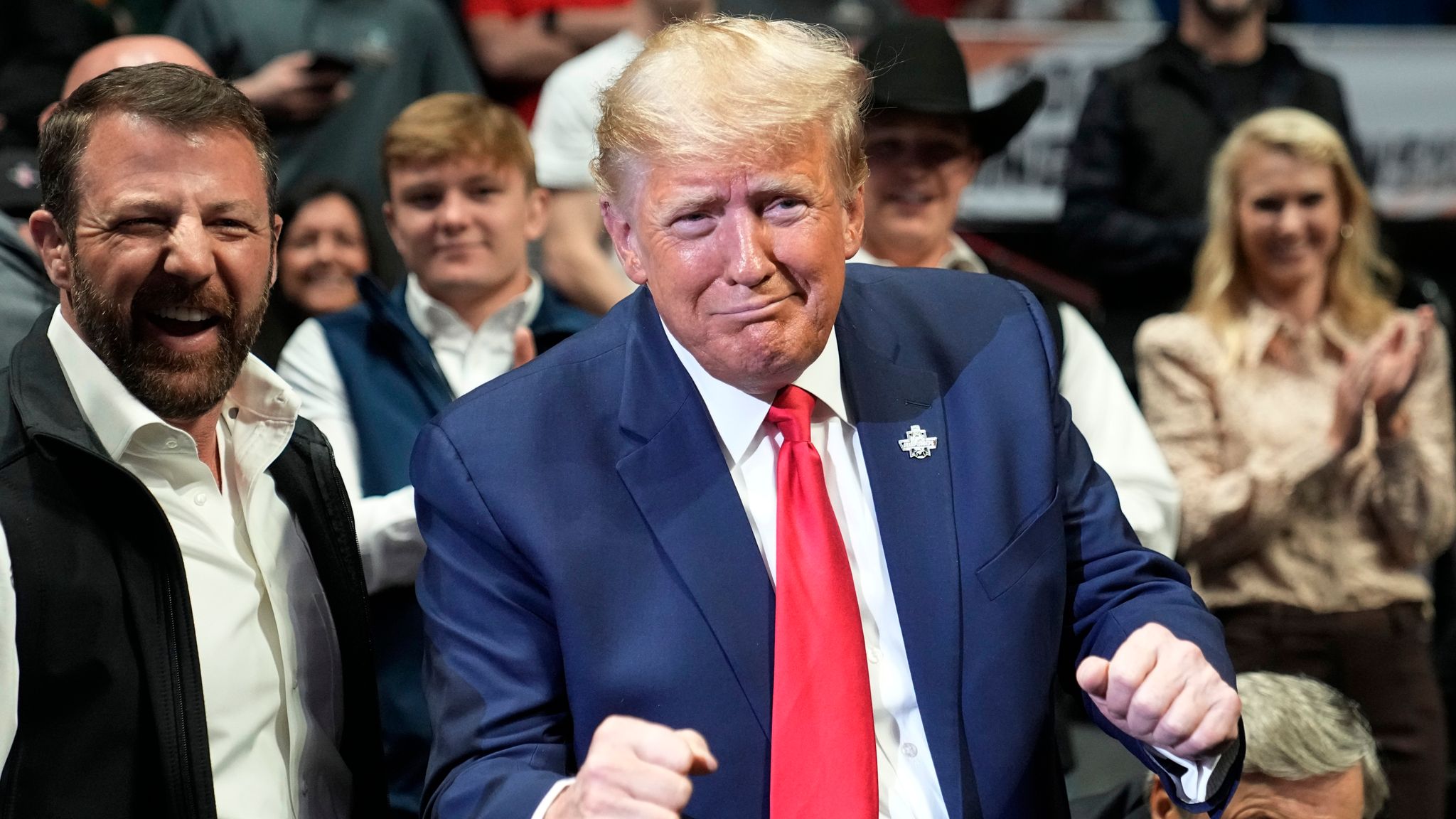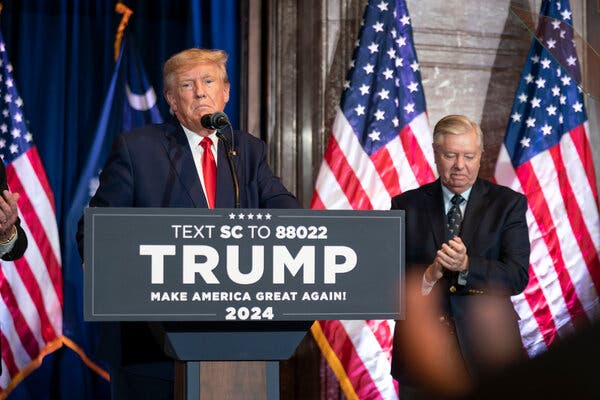Hostilities between the US government and Huawei took a new turn at the end of the week of May 13, when Donald Trump declared the national emergency to ban Huawei – the President of the United States has indeed signed a decree forbidding US telecom companies to source from foreign entities deemed to be at risk. The decree in question does not name China or Huawei – but this text must allow the United States to take action against “malicious acts favored by the Internet, including economic and industrial espionage”. In fact, Trump obviously seems to make sure that China does not become the world’s number one under his presidency.
Summary
Huawei banished from the US market and Android: a “foreign opponent”, according to the US
The White House believes that this national emergency is justified because “foreign opponents are increasingly exploiting vulnerabilities in the services and information technology infrastructures of the United States.” Huawei’s US expansion plans had already been abandoned for several months. But this new decree definitely prevents any hope that the situation will improve in the short or medium term. Huawei then denounced “unreasonable restrictions that will infringe on Huawei’s rights”.
It was also learned that the Commerce Department added Wednesday, May 19, Huawei to a blacklist of foreign companies for which US companies must obtain a mandatory federal government if they want to have the right to establish business relations. It was the combination of these two announcements that caused the first break in official business relations with Huawei.
Huawei will no longer have an Android license in August
So Monday, we learned that Google officially withdraws its Android license to the firm and its affiliate Honor. What this implies is that the firm will have less easy access to security updates and new versions of Android. But above all, its smartphones will no longer be able to use Google Play and more broadly all Google Suite applications (Google Maps, Google Photos, etc).
Nevertheless, both Huawei and Google have ensured that nothing will change for smartphones already on the market – both in the hands of customers and in stock. They will also continue to receive updates. The real consequences of this announcement will only affect the next generation of smartphones Huawei and Honor.
A few hours after the announcement, it was learned that Huawei was recovering his Android license for 90 days, the US Commerce Department giving him a little respite to update his smartphone already released. Google has therefore again authorized the Huawei Mate 20 Pro in the beta program Android 10 Q.
The founder and CEO of Huawei Ren Zhengfei nevertheless believes in an interview that this period is useless given the prophylactic measures taken by the firm for many months. In another interview, we learn that Huawei is discussing with Google to try to find a legal solution to cancel the presidential decree and its placing on the list of entities at risk.
The firm is also accelerating the development of its home operating system, called HongMeng OS internally. Huawei will launch HongMeng OS in October on some smartphones. Despite this plan B already developed, Huawei does not want to replace Android in Europe. For Google, this alternative is a threat to the US. Alternatively, Russia has proposed to Huawei to use Aurora OS, an operating system based on the open-source Linux distribution Sailfish passed under Russian control.
ARM decides to cut the bridges with Huawei and Kirin: fatal blow?
As if that were not enough, a second very bad news has just fallen: Huawei and HiSilicon have just lost their right to create SoC Kirin ARM. The holding company, subsidiary of SoftBank, believes that its technologies are based on American elements, and that it must comply with the new regulations (if it wants to keep its unlimited access to the US market). Huawei claims to understand ARM’s decision. The British firm is very sorry to have to comply with Trump’s requirements. Hermann Hauser, the founder of ARM, predicts even huge damage for the US industry and for ARM.
The implications are potentially much more serious than the loss of the Android license. It will not be possible to adapt something existing – Huawei will be forced to develop its own technologies on silicon (which is very long and expensive) to access the markets on which it will be, therefore, in competition with ARM devices. We do not know yet how Huawei can overcome that.
Anyway, Huawei can count on the support of foundry TSMC, which has decided to continue its deliveries despite US sanctions. The Trump decree could in any case cost the foundry dear. According to an analyst, TSMC would lose $ 1 billion in the second quarter.
Before the defection of ARM, Huawei would have had time to develop the SoC Kirin 720, a midrange component. The processor was indeed designed before the decision of Trump. In the process, the firm also had the opportunity to launch the production of Kirin 985, its high-end SoC. This information remains to be confirmed.
Other companies all over the world cut the bridges with Huawei
In addition to US companies and ARM, some European companies such as ST Microelectronics or Infineon could also scratch Huawei backlog. Either the latter have a subsidiary in the United States, or need access to US components and therefore feel obliged to respect the decree outside the US borders. The Japanese firm Panasonic has decided to no longer supply components to Huawei. The ban put forward by Donald Trump concerns all products made up of at least 25% or more of technologies or materials from the United States.
Following Trump’s decree, Huawei was also temporarily banned from the SD association. The independent non-profit organization has indeed decided to comply with the guidelines of the US Department of Commerce. Eventually, the SD association backed up and decided to reinstate Huawei. The next smartphones brand will be compatible with SD and microSD cards.
Shortly thereafter, the WiFi Alliance consortium decided to temporarily exclude Huawei for similar reasons. By losing its membership status, Huawei no longer participates in the evolution of WiFi and no longer has any influence on what become standards. Fortunately, Huawei has finally returned to the consortium.
Let’s also note that Huawei’s misfortunes could have big consequences for the development of 5G. Nokia and Ericsson in particular would see the exclusion of Huawei as a long-term opportunity. Nokia has thus announced to fill quickly its order book since April.
Huawei no longer has the right to pre-install Facebook, WhatsApp and Instagram on its smartphones
A few weeks after the Trump Decree, Facebook decided to break off its partnership with Huawei. The Chinese group is no longer allowed to install by default the applications of the Facebook environment, namely the Facebook app itself of course, but also Messenger, WhatsApp and Instagram. Devices already released are not affected. Similarly, you will still be able to install the applications yourself through an app store.
More updates: Huawei says Facebook, Messenger, WhatsApp and Instagram continue to work on their smartphones
Huawei and its US suppliers: a variable geometry dependency
Huawei is in a complicated situation. From a material point of view, the firm apparently relies on extensive expertise in many areas. It relies relatively little on Qualcomm, for example, thanks to its founder HiSilicon which manufactures SoC Kirin found in smartphones Huawei and Honor. But the underlying technologies of its SoC Kirin are actually based on one of the ARM licenses.
In addition, Huawei still needs chips manufactured by Broadcom, or Intel processors and chipsets used in its computers like the MateBook X Pro. Private Huawei, American founders like Intel, Qualcomm and Broadcom will lose millions of dollars.
But these three suppliers will turn their backs on him. Other American firms, including Microsoft, follow logically like Google with Android – and in the case of the Redmond firm, what that means is a ban on selling Windows licenses to Huawei. Without Windows, Huawei would have decided to suspend the production of its MateBook. Richard Yu, CEO of the consumer branch, confirmed the cancellation of the presentation of the new MateBook. Huawei had been concerned about this event for some time and was preparing for it.
Huawei had begun to prepare for this eventuality
First by buying several months upstream a stock of chips Qualcomm, Broadcom and Intel to cover its immediate needs. Huawei thus ensures to have enough stock of American components to hold all the year. According to analysts, Huawei will nevertheless run out of essential components by the end of this year 2019.
Then, developing his own alternatives. We know that the brand has been working on an alternative OS to Android and Windows since 2012. For now, the brand has said nothing more about this alternative, which could be called Ark OS. In the same vein, Huawei has also developed an alternative to the Google Play Store, App Gallery. At the latest news, Huawei will unveil its homemade OS in September 2019.
In order to test the viability of its operating system, Huawei has already produced 1 million smartphones under its home OS. Similarly, in order to give a boost to the tests in-house, Huawei would have invited giants like Xiaomi, Oppo or Vivo to test the OS in its laboratories and in the biggest secrecy. According to the first returns, the operating system would be 60% faster than Android.
We know that launching an OS is not enough to ensure its popularity. As evidenced by the market today completely dominated by the ecosystem Android and iOS. But there is perhaps also an intermediate way: an adaptation of Android to Huawei sauce. Or rather an Android without Google where Huawei would replace all G Suite applications with its own solutions. If they are mature enough and hold the comparison, then Huawei can also hope to recover the income formerly generated by Google applications on its smartphones.
Finally, even if this does not seem to be on the agenda lately, it is quite possible that the tensions between Washington and Beijing will eventually subside, and the restrictions on Huawei lifted – and that the situation will become so. business as usual. Which would ultimately be the best thing, because at this rate, there is no guarantee that Huawei will long cash these repeated shocks.
Operators, shops and consumers shun Huawei smartphones
Operators like Vodafone or EE have already announced their intention not to sell Huawei’s 5G smartphones. The telecoms fear that the manufacturer can not provide software monitoring of its devices. In the process, some stores even refuse to take a smartphone Huawei. Not surprisingly, this decree caused panic among consumers.
In the hours after the announcement, many have canceled their Huawei smartphone order on Amazon. Others have even preferred to resell their current smartphone on a recovery site. In the days following the US sanction, Huawei has seen a 30% drop in smartphone sales in Spain. Since the decree of Donald Trump, Huawei has also lost 20% of market share in Germany.
On the French market, Huawei has already recorded a 20% drop in sales. By 2019, the Chinese firm is expected to sell up to 58 million units less than expected. Unsurprisingly, the Chinese automaker does not know if it will dethrone Samsung by 2020 as it has always promised.
Huawei considers itself a victim of “harassment”
Reacting to the defections of chain suppliers since the beginning of the week, the head of Huawei Europe Abraham Liu believes in an interview that the American actions and their consequences constitute a real harassment. He explains that the firm does not want Google to have removed his Android license, and instead reveals working closely with the firm to find solutions. According to him, American actions contravene the liberal order based on the law (which the United States paradoxically helped to install …).
Xi Jinping, the president of the People’s Republic of China also reacted in an address to the Chinese people from Jiangxi Province, cradle of communism. Without naming Huawei or the United States at any time, he calls on the Chinese to prepare for “difficult times” because of the international context.
China prepares for “hard times”
Chinese President Xi Jinping told reporters that the opportunities for his country and its companies remain in the world, while recognizing that the international context is complicated by tensions with the United States. Since one of the cradles of the Chinese revolution, Jiangxi, he has asked his compatriots to prepare for “difficult times”.
For the time being, China has made some very measured decisions in response to US attacks. We do not know, for the time being, how to really interpret this posture. China has undeniable assets in the negotiations. It is for example one of the first producers of Rare Earth in the world, these metals essential to the industry. It is also the preferred production location for an impressive number of companies from around the world.
The United States suspends Huawei’s fate in the signing of a trade agreement
In an address to the press, the President of the United States blew the hot and cold around the case. On the one hand, Donald Trump believes that Huawei is a “very dangerous” company for US interests. On the other, he admitted that the fate of the firm could be included in the trade agreement that Washington and Beijing are negotiating. Earlier, Donald Trump also claimed that Huawei is “dangerous” and “lies to the world”. Positions that seem contradictory, not to say incompatible.
US Treasury Secretary Steven Mnuchin has confirmed that Donald Trump is ready to ease sanctions against Huawei if negotiations move in the right direction. Meanwhile, Russell Vought, acting head of the Trump administration’s budget, is trying to convince Congress to delay Huawei’s expulsion to 2022. The official wants to give the Chinese firm’s suppliers time to adjust.
Huawei wants to cancel his exclusion through legal channels
Huawei’s lawyers have filed an appeal against Donald Trump’s decree. According to experts hired by the Chinese group, this decision would be contrary to the constitution. It would even be an arbitrary punishment for alleged misdeeds and its links with the Chinese Communist Party. The lawyers speak of a “manifest abuse of power in derogation of due process” by Donald Trump.
China threatens to deprive the US of raw materials
The Chinese authorities are considering the possibility of cutting US access to rare earths, that is to say raw materials essential for the production of certain components used in many technological devices. These rare earths include a group of 17 metals needed to design batteries, chips, smartphones or PCs. In the same vein, the authorities decided to develop an alternative to Windows, believing that the Microsoft OS can now be a security threat.
Apple is not afraid of Chinese retaliation, for the moment …
Huawei boss Ren Zhengfei had already expressed his rejection of the American posture, and he did not want Apple, one of the spearheads, and symbol of the globalized US industry, to be targeted by measures Chinese retaliation. For now, by the way, China has not decided to hit Apple. And the boss of the firm, Tim Cook, thinks (or hopes) no less: “the Chinese have not targeted Apple at all. And I do not think that will be the case to be honest.
… but overall the US tech sector is starting to suffer
However, not all companies across the Atlantic are in this situation. The tech sector, and more specifically the semiconductor industry, is starting to suffer quite a bit from the US measures – and the ban on them now providing Huawei. Among them are companies like Skyworks, Qualcomm, Texas Instruments and Intel.
5G: Operators fear delay in launching technology around the world
Huawei’s expertise in 5G networks will be difficult to circumvent, warn operators who expect 2 to 3 years delay in case the case Huawei would not solve. Many operators have pre-emptively excluded Huawei technologies from deployment, mainly because of “misunderstandings generated by restrictions”. The initial deployment of the technology involved collaboration between international actors – many of whom were Chinese.
Chinese officials ask foreign companies to choose between the United States and China
On Tuesday and Wednesday, closed meetings were held between Chinese officials and officials of major foreign companies including Samsung, Dell, Microsoft, SK Hynix or ARM. According to The New York Times quoting sources close to these meetings, Chinese officials have asked these companies not to comply with US decisions and to lobby for the lifting of sanctions, in which they would be protected against any retaliatory measures.
Behind the Scenes, Huawei Prepares for the Future: The Case of Current Smartphones, AppGallery, and Revised 2019 Goals
Huawei is surprisingly resilient, despite the threats to its future. After information revealed that Facebook, WhatsApp and Instagram could no longer be preinstalled by Huawei, the brand has finally opposed a denial. Technically, for the moment, Huawei continues to benefit from a reprieve – which will end on August 19, 2019. And it is therefore especially smartphones launched after that date that will have to deal with a growing number of constraints. To make the transition as smooth as possible, Huawei is doing everything to attract developers to AppGallery, its alternative to the Google Play Store. Nevertheless, the firm has already revised its ambitions downward for 2019. And to bite his main competitor, Samsung: Huawei believes indeed that he could have exceeded his rival this year without the Trump trade war.
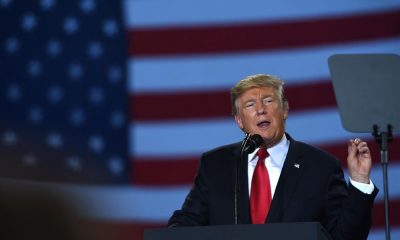
 Politics6 years ago
Politics6 years ago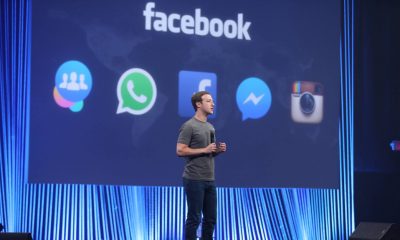
 Uncategorized6 years ago
Uncategorized6 years ago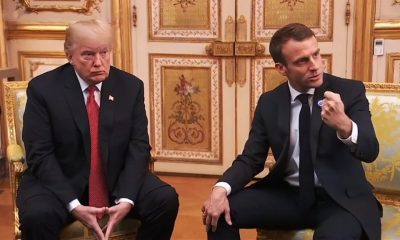
 Politics6 years ago
Politics6 years ago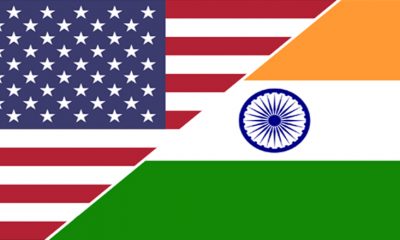
 Business6 years ago
Business6 years ago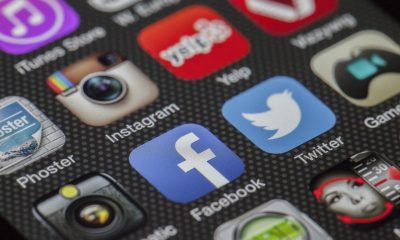
 Uncategorized6 years ago
Uncategorized6 years ago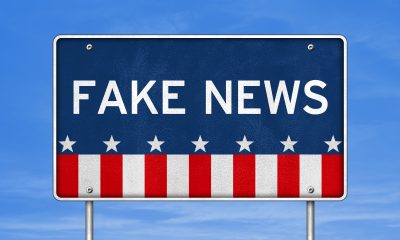
 Media2 years ago
Media2 years ago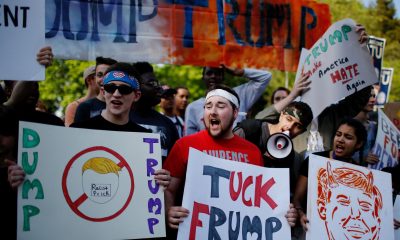
 Trump2 years ago
Trump2 years ago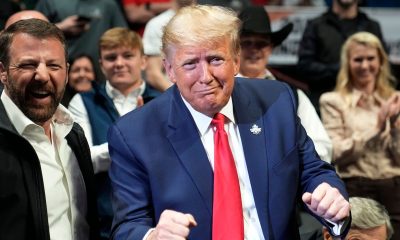
 Trump 20242 years ago
Trump 20242 years ago

